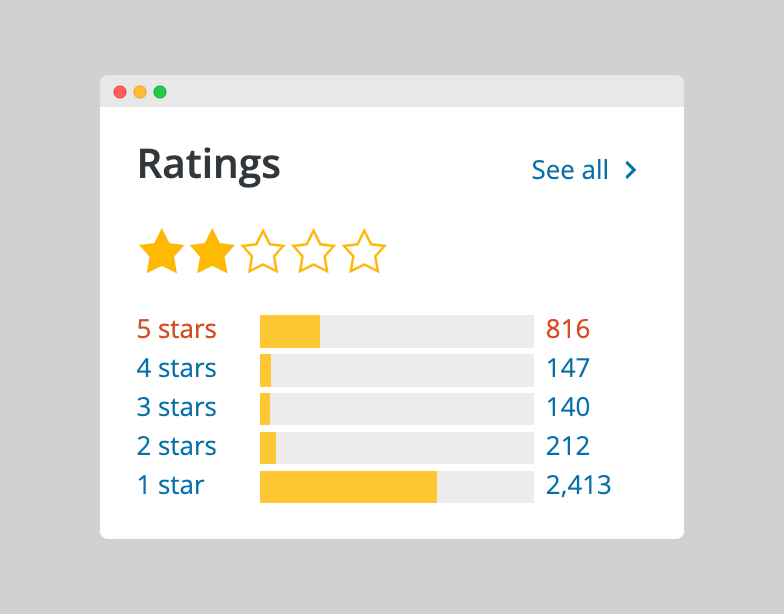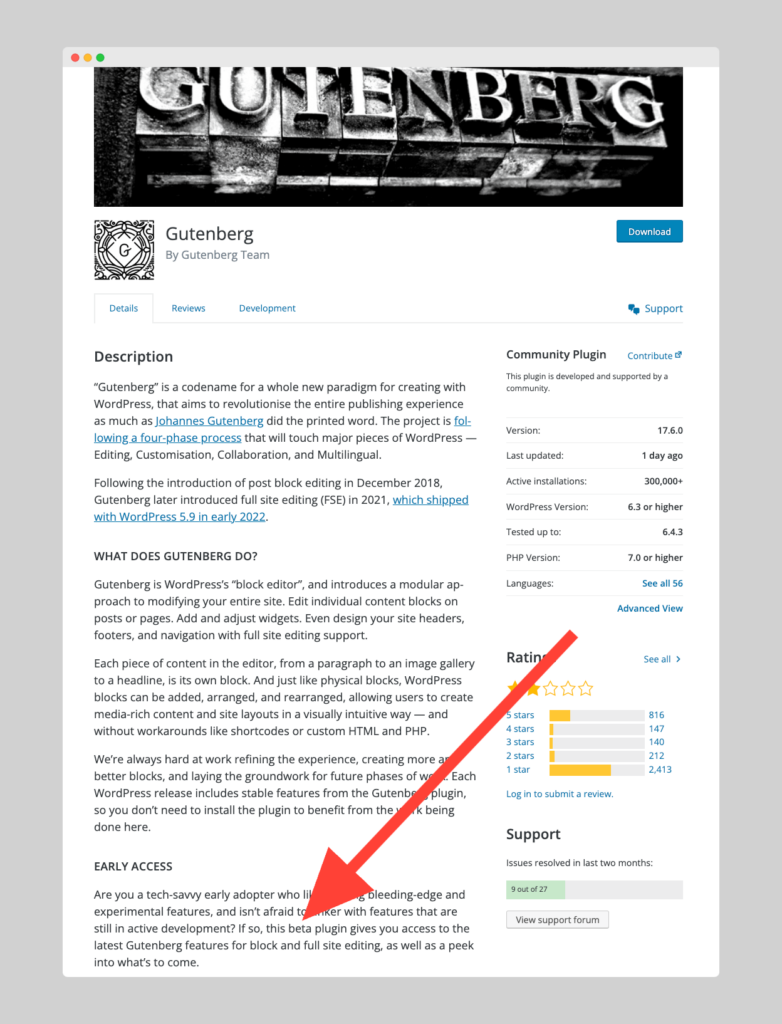The Gutenberg plugin, a new-age editor named after the innovative printing press of the 15th century, has been instrumental in revolutionizing content creation on WordPress. However, as we analyze the landscape of WordPress today, the question arises: should we remove the Gutenberg plugin from the WordPress.org repository?
This article isn’t suggesting that we abolish Gutenberg; rather, we explore the idea that it’s time to retire the plugin in favour of the core Gutenberg editor built into WordPress itself.
Before diving in, let’s clarify the difference between the Gutenberg plugin and Core WordPress. The plugin is an optional addition that allows users to access the latest features and enhancements of the Gutenberg editor before they are integrated into WordPress Core. On the other hand, Core WordPress refers to the base software that powers all WordPress websites, which already includes a stable version of the Gutenberg editor.
The Issue with Having a Separate Gutenberg Plugin
Having a Gutenberg plugin separate from the Core WordPress might seem beneficial on the surface, allowing the most adventurous to preview upcoming features. However, it introduces a significant degree of confusion in the market, especially for beginners and newbies. The presence of a Gutenberg plugin suggests that it’s an add-on feature and not the default WordPress editor, which is far from the reality. In fact, since WordPress 5.0, the Gutenberg editor has been the standard, baked right into the WordPress Core. This misunderstanding could potentially deter users from leveraging the full capabilities of Gutenberg.
The Cost Implications of the Gutenberg Plugin
Maintaining two versions of Gutenberg – the plugin and the core – isn’t only confusing; it’s costly. From a development standpoint, this dual existence implies supporting and ensuring compatibility with two versions of Gutenberg, which can drastically increase the time, effort, and therefore cost required to build and maintain WordPress plugins. It also expands the surface area for potential bugs and compatibility issues, leading to a higher demand for support resources. Developers, instead of focusing on creating innovative features and improving user experience, are drawn into a complex web of support and compatibility maintenance.
The Reputational Impact of the Gutenberg Plugin
The reputation of the Gutenberg project is also at stake here. The Gutenberg plugin, separate from Core WordPress, has garnered numerous one-star reviews.

It’s important to consider that these negative reviews often arise from misunderstandings or issues related to the plugin’s ‘bleeding edge’ features, which may not be reflective of the more stable Gutenberg in Core WordPress.
Nevertheless, they cast a shadow on the Gutenberg name, potentially discouraging users who may benefit significantly from the editor in its core form.
I would argue most users won’t be aware that Gutenberg is an experimental beta plugin. See a screenshot of the Gutenberg Plugin Page below. Can you spot where it says it’s a beta?

The Case for Removing the Gutenberg Plugin
With the issues stated above, it’s evident that the Gutenberg plugin’s removal from the WordPress.org repository could bring about multiple benefits. Firstly, it would simplify the user experience. Users, particularly beginners, will no longer face confusion about the role of the plugin versus Core WordPress. The WordPress experience would become more straightforward, encouraging more users to leverage Gutenberg’s power.
Secondly, plugin developers would be relieved from the burden of supporting two different versions of Gutenberg. They could focus their resources on developing innovative features, refining user experience, and providing more effective support. Consequently, this reduction in complexity would reduce costs.
Lastly, and perhaps most importantly, removing the Gutenberg plugin would alleviate much of the reputational damage associated with it. The Gutenberg project could finally step away from the shadow of one-star reviews and reinforce its commitment to providing a robust, user-friendly editing experience in WordPress Core.
Potential Counterarguments and Responses
There are certainly arguments in favour of retaining the Gutenberg plugin. Some users appreciate early access to the latest features. However, with the pace at which the Gutenberg project is innovating, even users of the core editor experience a steady stream of enhancements and updates. The introduction of a beta testing program for WordPress Core could cater to users eager to preview new features, while avoiding the confusion and fragmentation the Gutenberg plugin currently causes.
Another point in favour of the Gutenberg plugin is its role as a testing ground for new features. But this purpose could be served just as effectively by publicising the Github download, mitigating the need for a public-facing plugin that causes misunderstanding among users.
Conclusion
The Gutenberg project, much like its historical namesake, has been a game-changer in the world of WordPress. Its contribution is undeniable, but the time has come for us to reconsider the need for the Gutenberg plugin.
Removing the Gutenberg plugin from the WordPress.org repository could resolve several issues – from market confusion among beginners, to inflated development and support costs, to reputational damage. While there might be potential objections to this move, they can be addressed through smart alternatives like beta testing programs.
It’s my view that the retirement of the Gutenberg plugin is an idea worth serious consideration. By focusing solely on the Core WordPress Gutenberg editor, we can streamline the WordPress experience for users and developers alike, paving the way for a more efficient and unified WordPress ecosystem.
Leave a Reply